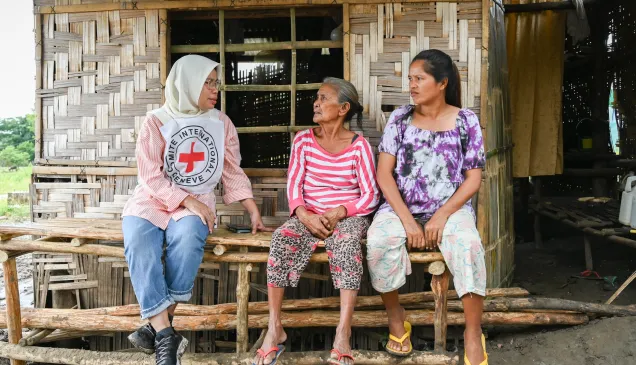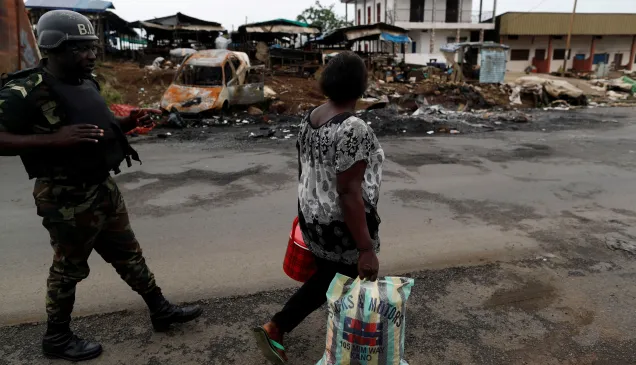At the New Bilibid Prison in Muntinlupa City, a vocational training area was transformed into an isolation ward for COVID-19 suspects and patients with mild and moderate symptoms. The ICRC provided beds and other furniture, medical equipment and supplies, and hygiene/ sanitation items for the isolation wards. Dubbed as “Site Harry,” the 160-bed facility was formally handed over to the Bureau of Corrections (BuCor) on April 30, 2020.
Halting the spread of COVID-19 in congested detention facilities
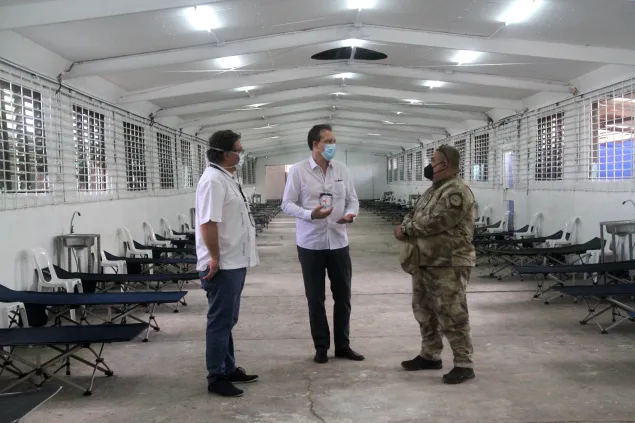
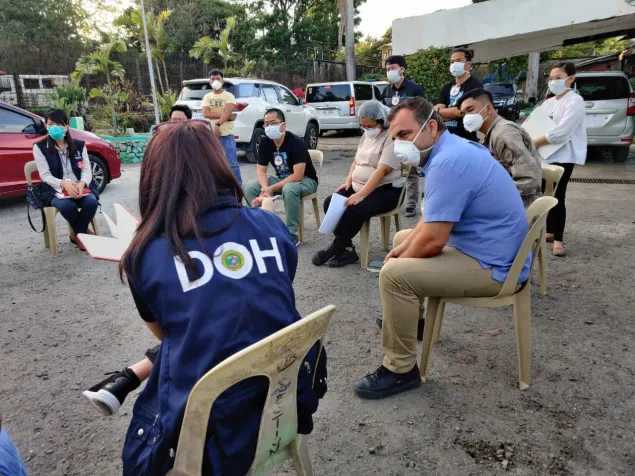
The ICRC supported the Department of Health (DOH) in the initial epidemiological investigation of COVID-19 outbreaks in places of detention. The ICRC joined representatives from the Bureau of Corrections, the DOH and the World Health Organization (WHO) for a discussion about COVID-19 at Site Harry in New Bilibid Prison.
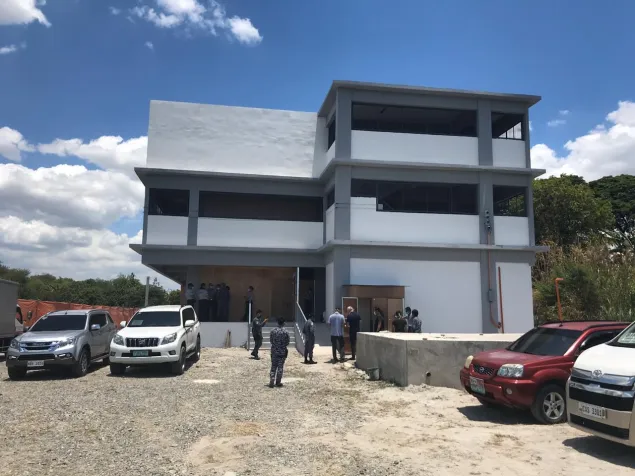
Emergency preparedness is key in dealing with a health crisis. Although there were no COVID-19 cases among detainees in Region 3, the ICRC and the BJMP officially opened a 40-bed isolation site for inmates in Central Luzon on May 4, 2020. The ICRC provided medical supplies and electronic tablets for the isolation facility, which is located in San Fernando, Pampanga. An ICRC health team also trained the facility’s staff on infection prevention and control (IPC), case management, and proper wearing of personal protective equipment (PPE).
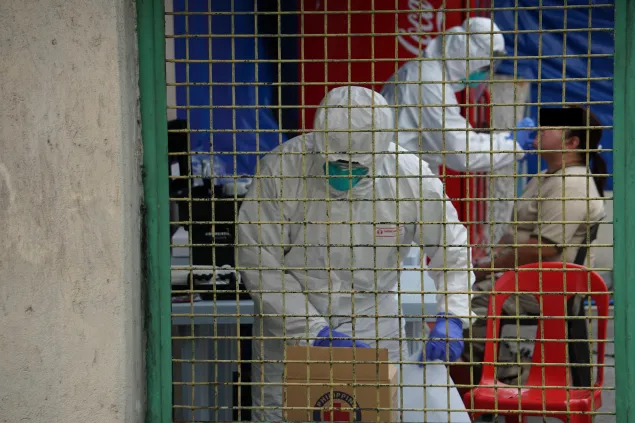
On May 5, 2020, the ICRC handed over a COVID-19 isolation facility at the Correctional Institute for Women (CiW) to the Bureau of Corrections. The isolation center, located in Mandaluyong City, has space for up to 150 female detainees. The Philippine Red Cross, with ICRC support, conducted the COVID-19 testing of several detainees and staff in CiW.
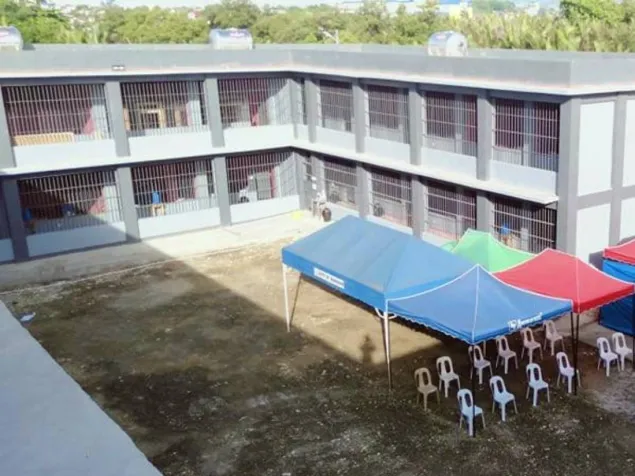
A 150-bed isolation facility at the new Mandaue City Jail in Cebu province was opened on May 7, 2020. The facility can further accommodate up to 280 patients.
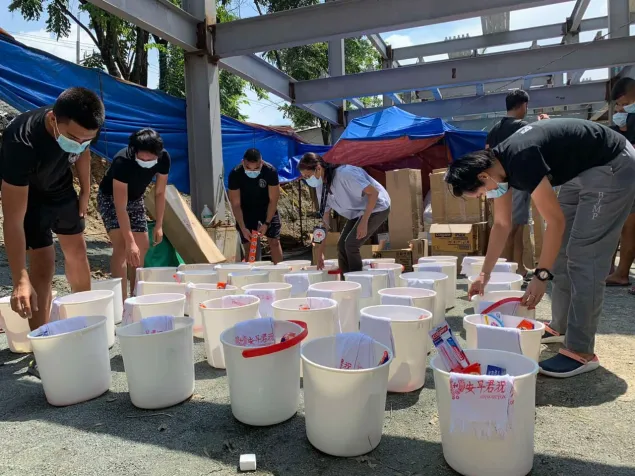
Maintaining good hygiene is essential in fighting the spread of COVID-19. Around 600 individual hygiene kits were distributed by the ICRC in the past month to five COVID-19 isolation centers for detainees it is supporting. The kits contain body soap, laundry soap, toothbrush and toothpaste, face towels, sanitary pads, and other hygiene items.
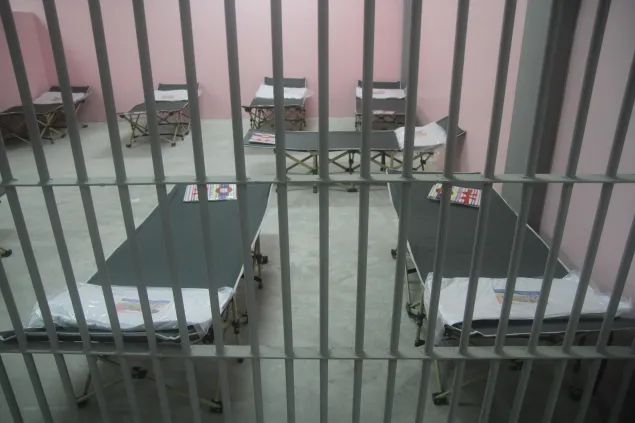
Under the BJMP’s management, the COVID-19 isolation center for Metro Manila detainees is located in the new Quezon City Jail site in Payatas village. It first became operational on April 8, with the
admission of COVID-19 positive detainees from Quezon City Jail. The site has since been expanded to accommodate up to 200 patients and was formally handed over by the ICRC to the BJMP on May 9, 2020.
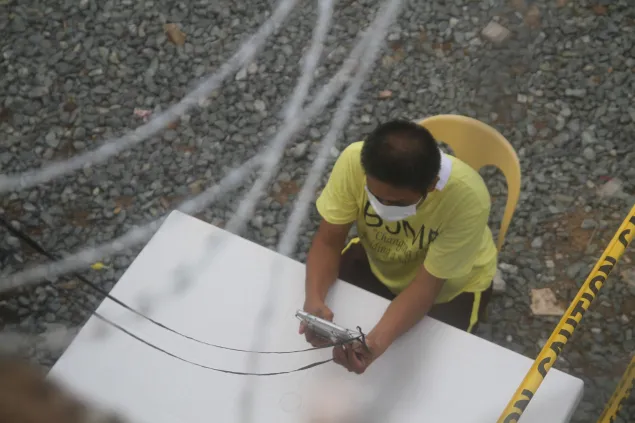
Physically distant but connected. Detainees are using electronic tablets donated by the ICRC to get in touch with their loved ones as visits have been suspended under quarantine. In this photo, a detainee at the isolation center in Metro Manila talks to his family via video call.
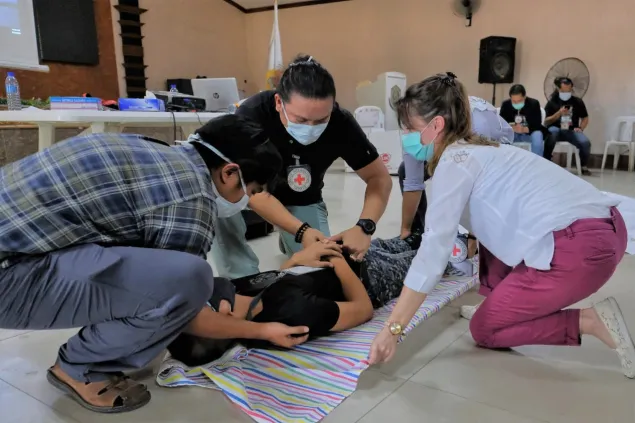
Aside from correctly wearing PPEs, learning how to properly handle human remains can help ensure the health and safety of frontliners. This photo shows a training held for 240 incoming jail officers at the National Jail Management and Penology Training Institute (NJMPTI) in Quezon City.
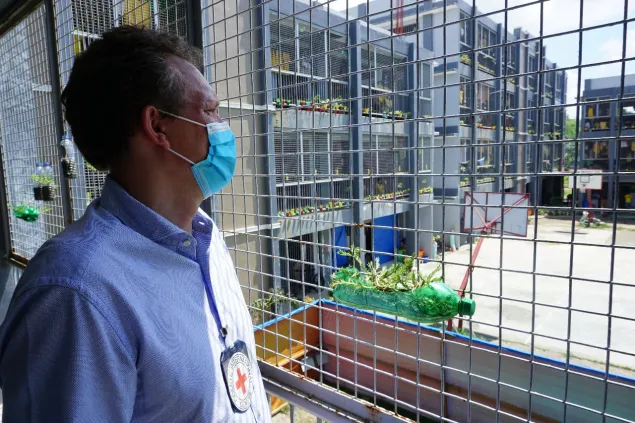
In Quezon province, the ICRC and the BJMP formally opened a COVID-19 isolation facility for detainees in Region 4A on May 20, 2020. The ICRC provided the 80-bed facility with medical materials and equipment, as well as electronic tablets that will allow detainees to get in touch with their loved ones during the pandemic. On May 18, health and forensics staff from the ICRC trained 22 jail staff on the proper use of PPEs and management of human remains.
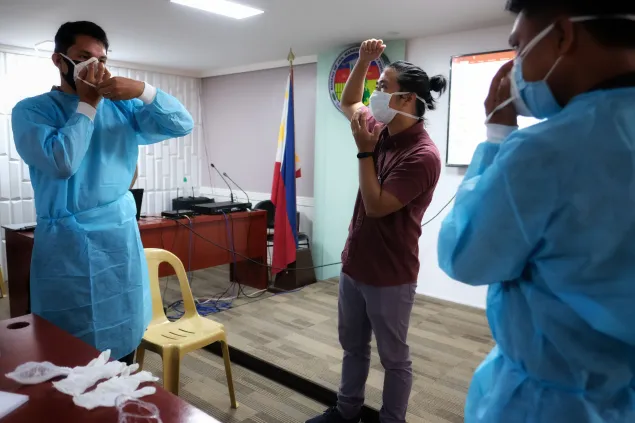
Part of the ICRC’s response is enhancing the knowledge and capacity of frontliners in dealing with COVID-19 cases. ICRC staff trained jail personnel assigned to the Emergency Response Team in Region 4A on case referral, infection prevention and control, and proper use of PPEs.
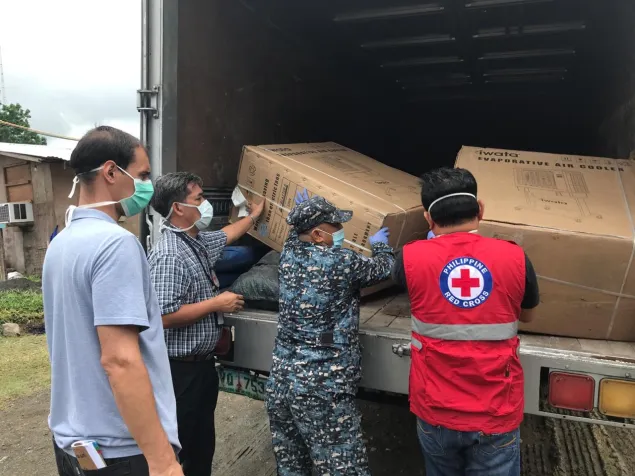
The Philippine Red Cross, the ICRC’s main partner in the country, has been supporting our COVID-19 response in detention places since day one. In the photo, the Philippine Red Cross delivers tents for the COVID-19 isolation ward at the Quezon District Jail.
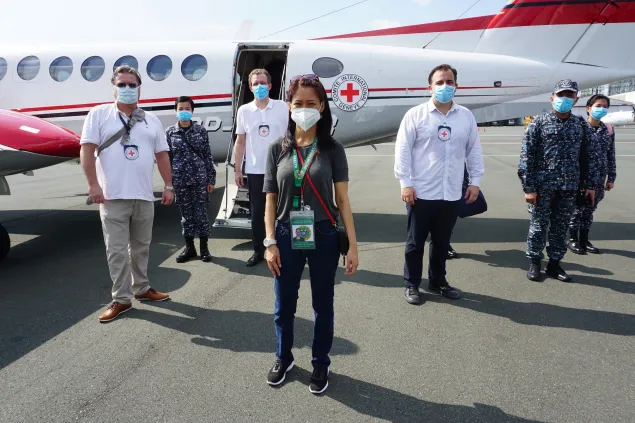
Since domestic flights were stopped as a result of quarantine measures, the ICRC sought partners in the private sector to reach detention places situated on different islands that were in need of support. The delegation chartered PG1 airplane four times from the Philippine Disaster Resilience Foundation (PDRF) to bring frontline responders from the ICRC, the BJMP and the DoH to Cebu (twice), Cotabato and Zamboanga in order to respond to COVID-19 outbreaks in the respective prisons.
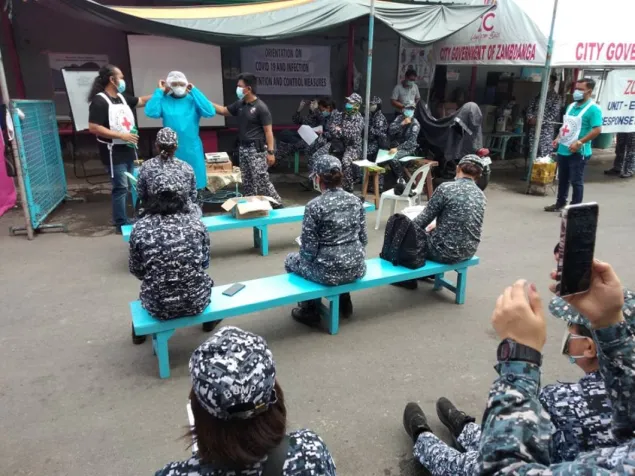
Together with the Department of Health, the ICRC is supporting the BJMP in Zamboanga City by providing technical support on the design of isolation areas for inmates. We donated 150 foldable beds and390 pallets as well as caution tapes, medical equipment and supplies, furniture, cleaning materials, hygiene kits and PPE for the Zamboanga City Jail (ZCJ) isolation site. On May 21 and 23 the ICRC trained ZCJ staff on infection prevention and control. To improve water supply at the ZCJ, the ICRC also donated and supervised the installation of water pipes, pumps and fittings.
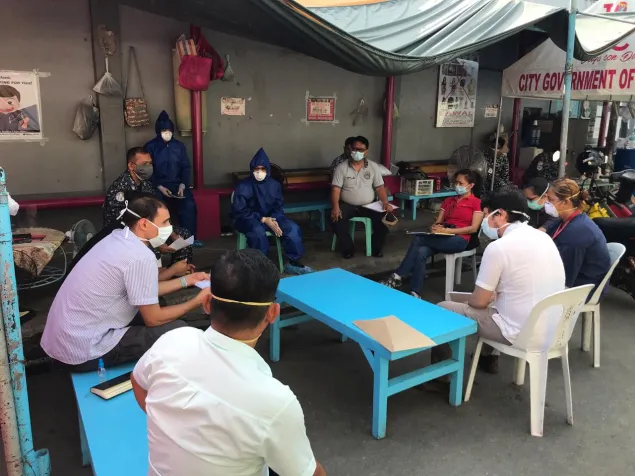
Zamboanga City Jail male and female dormitory wardens participated in a coordination meeting with a multidisciplinary team from the ICRC.
Many detention facilities around the world are overcrowded, making them extremely vulnerable to a rapid spread of COVID-19. Chronic challenges in detention—such as limited human and financial resources, access to healthcare, clean water, and sanitary facilities—make the situation even more critical.
In the Philippines where jail congestion is high, the ICRC rapidly focused its COVID-19 response in supporting authorities to prevent and control the spread of the highly infectious disease, drawing from its long experience in helping them manage tuberculosis inside the country’s jails and prisons.
This meant assisting them to set-up isolation facilities for detainees who are suspected or confirmed to have the virus. The ICRC worked with them to ensure that the facilities are equipped and designed to respect infection-control guidelines, while its staff were trained on infection prevention and control measures and provided with protective and disinfection/ sanitation materials. Accordingly, detainees should participate in health promotion and disease prevention sessions.
While the ICRC initially aimed to support four COVID-19 isolation facilities for detainees in highly congested regions—Metro Manila, Calabarzon and Central Luzon (under the Bureau of Jail Management and Penology), and the New Bilibid Prison (under the Bureau of Corrections)—positive cases in three other detention facilities started to be confirmed. The ICRC also provided its technical expertise and resources in these places of detention, upon the request of authorities, as time was of the essence. Thus, in total, the ICRC supported the establishment of eight COVID-19 isolation centers, with a combined 1,130 bed capacity.
Complementary to setting up the medical isolation facilities, the ICRC worked closely with the authorities on co-developing COVID-19 guidelines for detention facilities, providing recommendations, and facilitating coordination with jails among other agencies (e.g. Department of Health, local government units).
All isolation facilities and most of the material donations have since been handed over to the authorities, who have the full responsibility in running them. ICRC staff continue to support the facilities through on-site visits or remote coordination and encourage higher coordination among the concerned agencies to achieve sustainable and comprehensive solutions.

